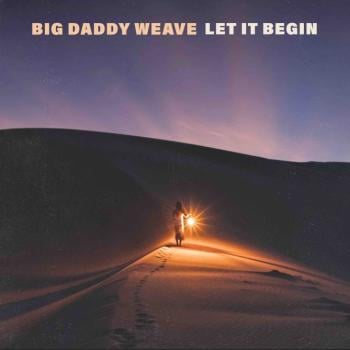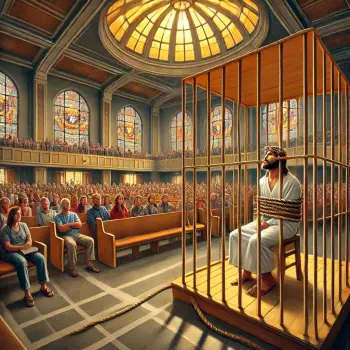Editors' Note: This article is part of the Patheos Public Square on the Future of Faith in America: Evangelicalism. Read other perspectives here.
Colin, my 24-year-old son, is a Millennial's Millennial. He's well educated, idealistic, and tech-savvy — all telltale characteristics, we're told, of the Millennial generation. He climbs rocks, follows English football, and listens to the most obscure bands imaginable.
And, like a growing number of young Americans, he doesn't go to church. Never mind that he was raised in an evangelical family and his pop writes for, primarily, an evangelical audience. Never mind that my wife and I — like the good evangelical parents we are — constantly shovel Christian books into his car and invite him to church. He doesn't see the point.
He's got company. According to a study from the Pew Research Center, American Christianity is on the decline. Just 70.6 percent of Americans claimed to be Christian in 2014 — down from 78.4 percent just seven years earlier.
Catholicism and mainline Protestantism (more liberal denominations such as the United Methodist Church and Presbyterian Church USA) account for most of that drop. But as a percentage of the population, Evangelicalism is down as well: While 26.3 percent of Americans claimed to be evangelical in 2007, just a smidge over 25 percent would say so today. And when Pew broke stats out by age group, it found that just 19 percent of younger Millennials — Americans born between 1990 and 1996 — were evangelical Christians. That's just a little over half of those who said they didn't have a religion at all (36 percent). That doesn't exactly bode well for all those huge megachurches built by Baby Boomers and Generation X.
And perhaps those very megachurches feed the problem.
It's not like all those unaffiliated Millennials are converting to atheism (though a growing number, admittedly, are). Many are like my son: not hostile to faith, but suspicious of its earth-bound practitioners. In a 2015 study, the research firm The Barna Group found that two-thirds of Millennials believe American churchgoers are hypocritical, and more than a third say that scandals within the church have shaped their view of the church.
Their skepticism is often warranted: When I was a kid, I watched televangelists Jimmy Swaggart and Jim Bakker confess to a host of moral failings. As a journalist, I covered Ted Haggard — the president of the National Association of Evangelicals — as he fell from grace for his dealings with a male prostitute. Last year Mark Driscoll — a pastor who co-founded the Millennial-friendly megachurch Mars Hill — quit the pulpit due to a litany of allegations ranging from plagiarism to bullying members of his own staff.
We evangelicals have given Millennials plenty of reasons to leave the church. And given the fact that we're all very human still, the Church will never be fully free of scandal and charges of hypocrisy.
Even if the evangelical Church kept its spiritual nose clean, though, it faces other challenges. Nearly three-quarters of Millennials favor same-sex marriage, while the majority of evangelicals would consider it a sin. In a recent study published in Archives for Sexual Behavior, 62 percent of young Americans don't believe sex outside of marriage is "wrong at all." Most evangelicals would beg to differ. A great many Millennials have been turned off by Christian political activism, and no group of Christians has been more active the last few decades than evangelicals.
Millennials, we're told, don't want to be told what to do from a pulpit. They want to sit and talk. They want to swap stories.
And therein, I think, lies the future of the evangelical church — and perhaps the Church as a whole. Because our religion is not based on a set of rules or a group of authority figures: It is, at its core, a story.
The Bible opens with a very storybook-like "In the beginning." Throughout, we're told the stories of Joseph and Moses and David, of Elijah and Paul and Jesus. Christ himself taught through story. And so we evangelicals do today: Personal "testimonies," our stories, are a critical part of how we convey our faith.
And we don't share those stories just in Church. Our communities are far larger today, spanning the globe through myriad social networks. Timeless truths are conveyed through movies and music. We see how God influenced the story of Martin Luther King Jr. in Selma, feel the echoes of sacrifice and redemption in Avengers: Age of Ultron, muse about the nature of God-given and man-driven creation in Jurassic World. Sometimes Christians are involved in the making of such stories. But the themes in God's overarching story are, I think, woven in our DNA: I believe that's why culture's most resonant stories touch us so. They contain elements of our own.




